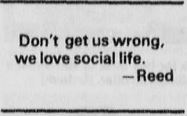by Johnnette Johnson
Johnnette Johnson is a rising senior from Marksville, Louisiana majoring in American Studies and French. Though her journey with the Race & Racism Project only began this summer, she has been involved in racial justice and community work since her matriculation at UR. A peer mentor and UR Downtown ambassador, when she’s not on campus or with family she’s out enjoying nature. She hopes to continue doing the work of commemorative justice and collective healing.
 Our experiences construct who we are and how we see the world. A single person’s mindset, molded by their life experience, can easily take on a bias that manifests itself in the form of judgement or predisposition.
Our experiences construct who we are and how we see the world. A single person’s mindset, molded by their life experience, can easily take on a bias that manifests itself in the form of judgement or predisposition.
These facts are seemingly digestible. But when it is time be critical of oneself, personal bias is a hard cookie to swallow. Uninvited and unannounced, this process of self-analysis fell into my lap during my first interview with Mr. James “JR” Reed (’81).
It was about a week before Mr. Reed’s oral history, and I knew I needed to begin researching. Founder of Phi Beta Sigma and athlete, his name had already popped up in the oral history of his colleague Mr. Stan Jones (’83). I then looked up his name in the school newspaper’s archives and found articles about the chapter and its founding.
 On April 24, 1980, “Largely Black Fraternity Seeks to Start UR Colony,” written by staff writer John Light, appears in the Collegian.* The article details the goals and aspirations of both Mr. Reed as a student at UR and Phi Beta Sigma as a chapter at UR. He was quoted speaking about the fraternity’s emphasis on academic quality and social service, but the block quote (the words that stand out on the page almost as much as the title) was “Don’t get us wrong, we love social life.”
On April 24, 1980, “Largely Black Fraternity Seeks to Start UR Colony,” written by staff writer John Light, appears in the Collegian.* The article details the goals and aspirations of both Mr. Reed as a student at UR and Phi Beta Sigma as a chapter at UR. He was quoted speaking about the fraternity’s emphasis on academic quality and social service, but the block quote (the words that stand out on the page almost as much as the title) was “Don’t get us wrong, we love social life.”
The staff writer’s emphasis on partying in the middle of such a monumental story was baffling, especially when other quotes throughout the piece were more substantive: “Black students wish to be identified as other than football players. By emphasizing academics, we hope to change this. Phi Beta Sigma can unify blacks for black concerns.”
I grappled with the staff writer’s choice and wondered what kind of bias he held. I wondered what kind of bias Mr. Reed’s other peers had and about the biases of his professors and coaches. To be honest, I was preparing myself to be overwhelmed by stories of overt and covert racism. In fact, I was expecting it.
Though I still didn’t realize it, I had painted my own mural of how Mr. Reed’s oral history would go. I sat down with him and the stories started coming out. I felt something like disappointment well up inside of me. I was disappointed in myself because, I didn’t get the story that I went in looking for. I thought maybe I didn’t ask the right questions or that I didn’t foster an environment of comfort; then I remembered a couple things.
Blackness is vast. There is no one experience, no one evening, afternoon, or encounter that can sum up the black experience neither in this country nor on this campus. The fact that Mr. Reed’s stories were a little different from what I expected only meant that he’s added more flavor to our quilt of blackness.
I should not be disappointed in myself, because I did exactly what the Race & Racism Project set out to do–to capture those experiences that may have been pushed into the cracks of the archives and make them accessible. That’s exactly what I did, and that’s what I’m happy to be doing this summer.
* “Colony” was used, exclusively in the late 1960s to the early 2000s, to describe probationary bodies of national fraternities and sororities.
